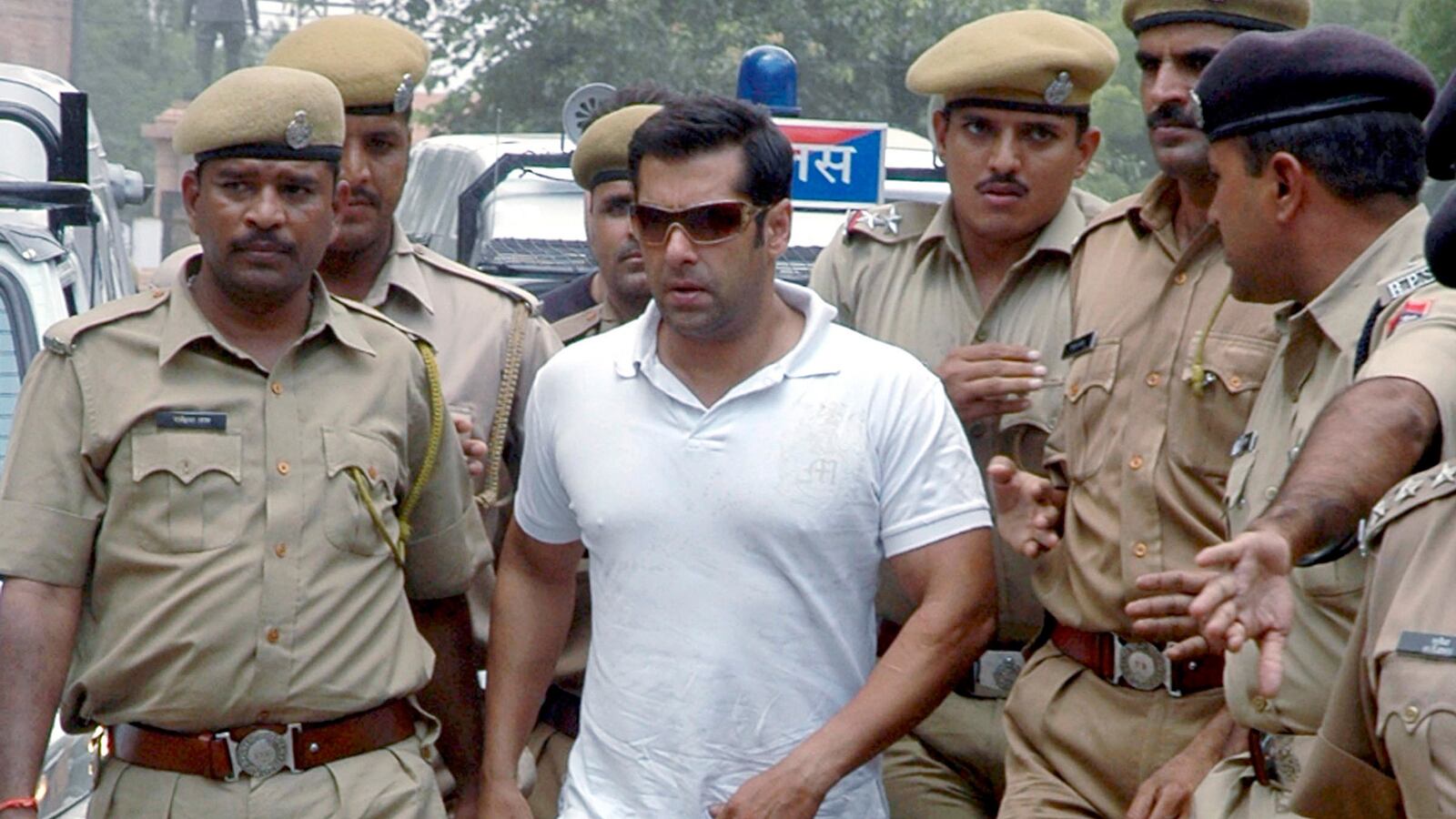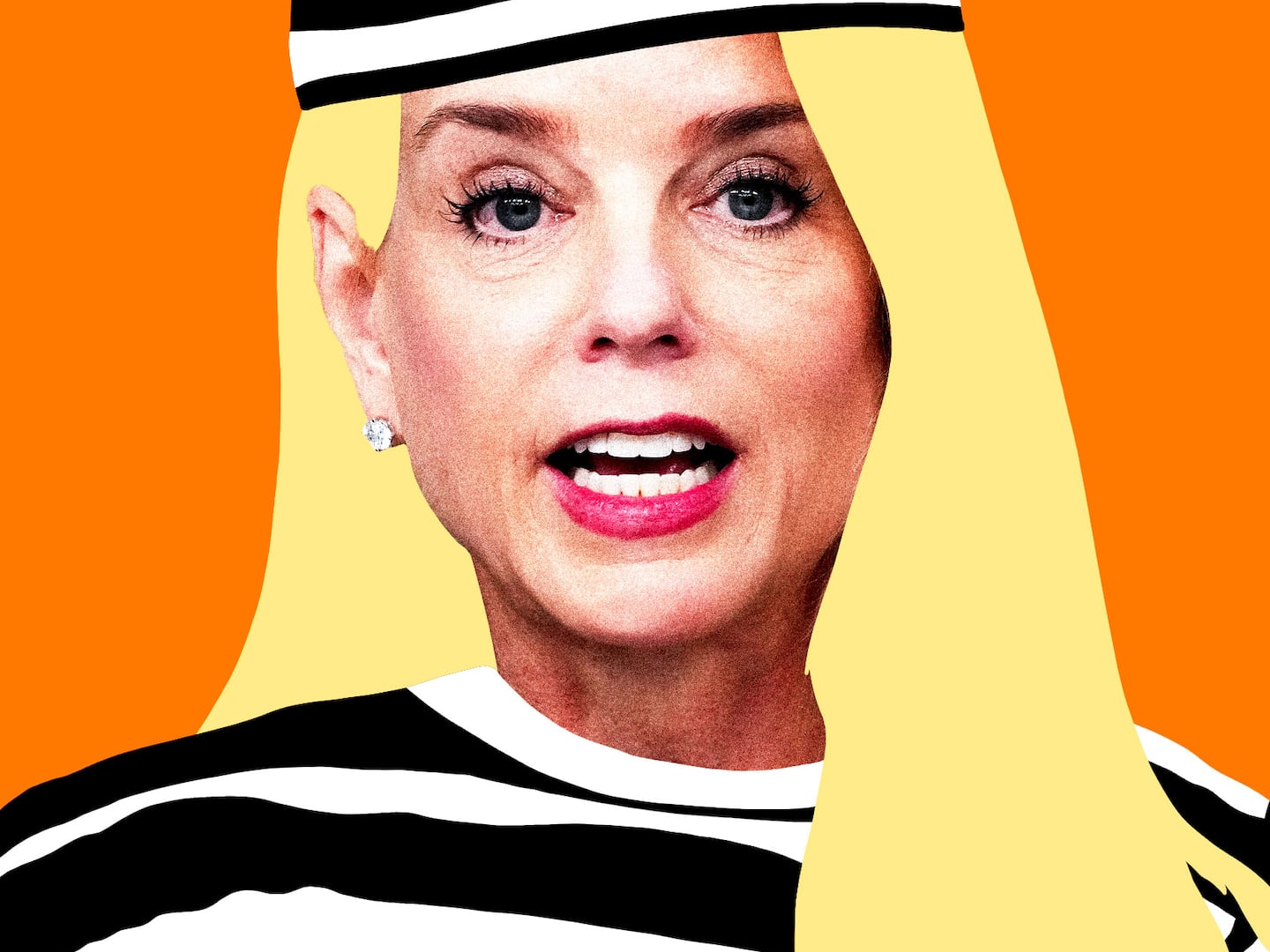MUMBAI — Bollywood actor Salman Khan was sentenced this week to five years in jail for killing a homeless man in Mumbai in a hit-and-run case that has festered in India’s courts for nearly 13 years.
Khan, one of India’s most popular film stars, was drunk in September 2002 when he drove his Toyota Land Cruiser into a street-side bakery, running over five men sleeping on the pavement. One died, and the other four were injured.
A local court in Mumbai found the 49-year-old actor guilty of culpable homicide, as well as various charges including driving without a license, and driving under the influence of alcohol.
The verdict, although severely delayed by the vagaries of India’s inefficient judicial system, sends a strong signal to the rich and powerful—even celebrities are not above the law.
But life for the poor and powerless in the financial capital is unlikely to change.
On Tuesday night, hours before Khan’s sentence was pronounced, three men slept on the steps outside the same bakery in Mumbai, according to a report in the local newspaper, Mumbai Mirror.
The “houseless” population of Mumbai is 57,416, according to the government of India 2011 census. But nonprofits and local newspapers estimate the number is 10 times higher, nearer 500,000.
“People who sleep on the street do it because they have no other option,” said Sheela Patel, director of the Society for the Promotion of Area Resource Centers (SPARC), an NGO working on housing and infrastructure for the urban poor.
People who are paid too little to afford shelter, or even transport to their place of work, “do these things for their survival,” she said.
Khan’s case highlights a decades-old problem in a city that struggles to accommodate its ever-exploding population.
Often dubbed the city of dreams, Mumbai has long been the hub for poor migrants from other parts of India searching for lucrative jobs. Forty-one percent of the city’s population lives in slums, according to government estimates. These cramped shantytowns lack the most basic amenities like clean water, enough toilets, drainage and ventilation.
Those who are too poor to afford the slums seek shelter in roadside ditches, on sidewalks and under bridges. They become vulnerable to late-night drivers who, often intoxicated, carelessly cruise the streets above the speed limit.
“The issues that are long-standing and difficult don’t get addressed,” said Patel.
With the development of new overpasses and high-rise apartment complexes in wealthy neighborhoods, “it’s becoming easier and easier for the rich not to pay attention to the plight of the poor,” she said.
The outpouring of sympathy that Khan received from his Bollywood colleagues and adoring fans after the judge pronounced him guilty showed an utter lack of concern for the victims of the hit-and-run incident.
While most praised the actor to show their solidarity—one actress called him “the nicest human being” —some seemed to blame the homeless.
Indian singer Abhijeet Bhattacharya said on Twitter, “Roads are meant for cars and dogs not for people sleeping on them. @BeingSalmanKhan is not at fault at all.”
After facing widespread criticism online and in the media, Bhattacharya apologized for his callous choice of words.
Khan, who rose to fame baring his plucked, oil-slick chest in commercial Bollywood blockbusters, has cultivated a reputation as a bad boy. His onscreen persona—a brash, macho, untameable-yet-somehow-endearing hero chasing after beautiful women and beating up bad guys—has widespread appeal.
He’s acted in almost a hundred movies, including some of the highest-grossing Indian films of all time, and if he is forced to serve his five-year jail sentence, producers are afraid they’ll lose over 2 billion rupees ($31 million), according to the Press Trust of India.
In court, Khan maintained his innocence— he told the judge he wasn’t drunk and that his driver was behind the wheel, according to a Press Trust of India report.
Within hours of the guilty verdict, Mumbai’s high court granted Khan interim bail until Friday while he awaits a copy of the judgment. Legal experts say he is likely to appeal the conviction.
Indian actors, like Indian politicians, are notorious for remaining in the public sphere in spite of facing criminal charges.
Another famous Bollywood star, Sanjay Dutt, in 2013 finally began serving a five-year sentence after the Supreme Court of India upheld a conviction against him for the illegal possession of arms linked to terror attacks in Mumbai in 1993.
Khan is also facing trial for poaching blackbuck, a small Indian gazelle, in the northern state of Rajasthan in 1998. Although lower courts have found him guilty, he has spent only a handful of nights in prison before repeatedly being released on bail while he appeals his case.
This poaching case, like the hit-and-run one, has languished in Indian courts while Khan continued to drive around in sports cars on screen and pocket billions of rupees in person.






